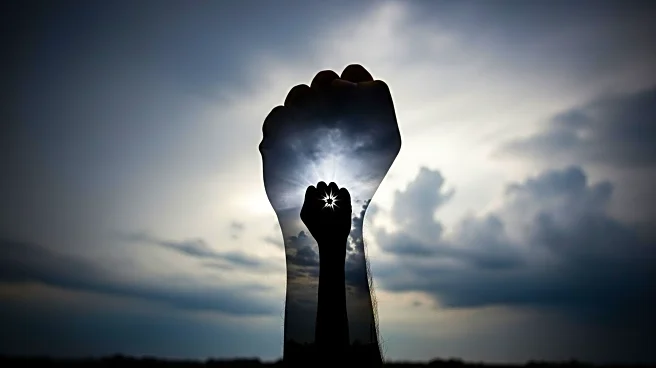What's Happening?
Mass protests erupted across Israel as families of hostages called for public demonstrations, urging the government to take action. The largest rallies were held at Hostage Square in Tel Aviv and Paris Square in Jerusalem. Speakers included relatives of hostages and bereaved families, who expressed their frustration and called for an end to the war. The protests were marked by emotional speeches, with participants demanding change and a comprehensive agreement to end the conflict. The demonstrations reflect growing public discontent with the government's handling of the situation and the ongoing violence.
Why It's Important?
The protests highlight the increasing pressure on the Israeli government to address the hostage crisis and the broader conflict. The public's demand for change underscores the societal impact of the ongoing violence, which has affected many families. The demonstrations could influence political leaders to reconsider their strategies and seek diplomatic solutions. The situation also raises questions about the government's ability to manage internal dissent and maintain public support amid escalating tensions. The protests serve as a reminder of the human cost of the conflict and the urgent need for resolution.
What's Next?
The protests are likely to continue, with organizers calling for a general strike and further civic action. The Israeli government may face increased pressure to negotiate a comprehensive agreement to end the conflict and secure the release of hostages. Political leaders will need to address the public's concerns and find ways to de-escalate the situation. The international community may also play a role in facilitating dialogue and supporting efforts to achieve peace. The outcome of these protests could significantly impact the government's approach to the conflict and its relationship with the public.









